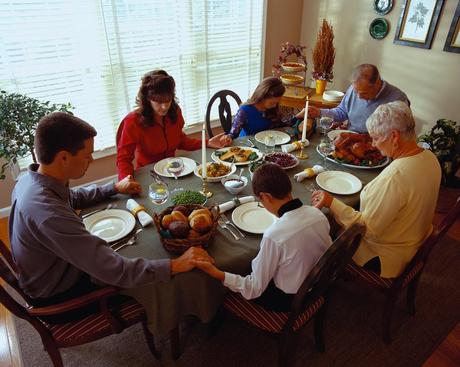 Did Changing Your Diet Change Your Life? You’re Not Alone!
Did Changing Your Diet Change Your Life? You’re Not Alone!
If you are one of the millions of people who has healed from chronic disease, reached a healthy weight, or even become physically fit from changing your diet and embarking on a healthy lifestyle, it can be difficult to see family members continue to struggle with health problems, overweight, and lack of physical fitness as they continue to eat in a way that you perceive is contributing to their problems. This can indeed create a lot of tension at the dinner table, which may also extend into your entire relationship with you family member(s). When you don’t eat the food that your family has cooked or if you tell family members that they shouldn’t eat a particular food, this can make people very upset. Here’s what you can do to help make family meals drama-free when there are different dietary beliefs at the table.
It’s Not About The Food.
First, it’s important to realize that when people are offended by what you eat or don’t eat, or deeply upset when you notify them that their favorite foods are not good for them, it’s not really about the food. It’s about their emotional connection with that food. For these people, food is not just something we need for survival and good health; to them, food is nostalgia, comfort, entertainment, or even love. Giving up a childhood favorite food or no longer cooking a family recipe that has been passed down for generations might be confused by them to mean you didn’t enjoy your childhood or you don’t love the relative who shared the family recipe. If you’ve started eating a gluten-free diet and noticed that you no longer have allergies or migraine headaches, when you don’t eat the family fruitcake recipe at Christmas, this might be perceived by family members that you don’t love them or you think you’re better than them because you aren’t sick anymore. While you might feel like it’s in everybody’s best interests to notify them that they’re food makes you sick, or the food they’re eating is making them sick, this is usually not a good idea.
Tell them your “before” and “after” story.
One way of handling the situation is to notify family members before you sit down to eat with them that you eliminated a chronic health problem, lost weight, became more physically fit, or in some other way improved your life by changing your diet. You might ask, “Aren’t you so happy that I no longer need any medications and I feel amazing?” Surely they will agree with this. Then tell them the details of exactly how you changed your diet. You might even admit that it sounds a little crazy. “Can you believe it? All I did was stop eating this (name what you cut out) and start eating that (name what you added)!” There’s no need to tell them what you think they should do about their diet. They can see the change in you, and if they want that change for themselves they can do what you did.
Just be aware that some people are not ready to make the change. It doesn’t mean they never will. It just means not yet. They may be observing you to see if you continue to enjoy freedom from your health ailments of the past on your new diet. If the change sticks and you appear to be enjoying the foods you eat and not missing the foods you don’t eat, then those family members may begin to think, “I can do this too!”
But that’s not the goal. The #1 goal is to prevent drama and misunderstandings, and mend them if they’ve already occurred. Make sure family members understand that food is not love. Changing your food does not mean you do not love them.

